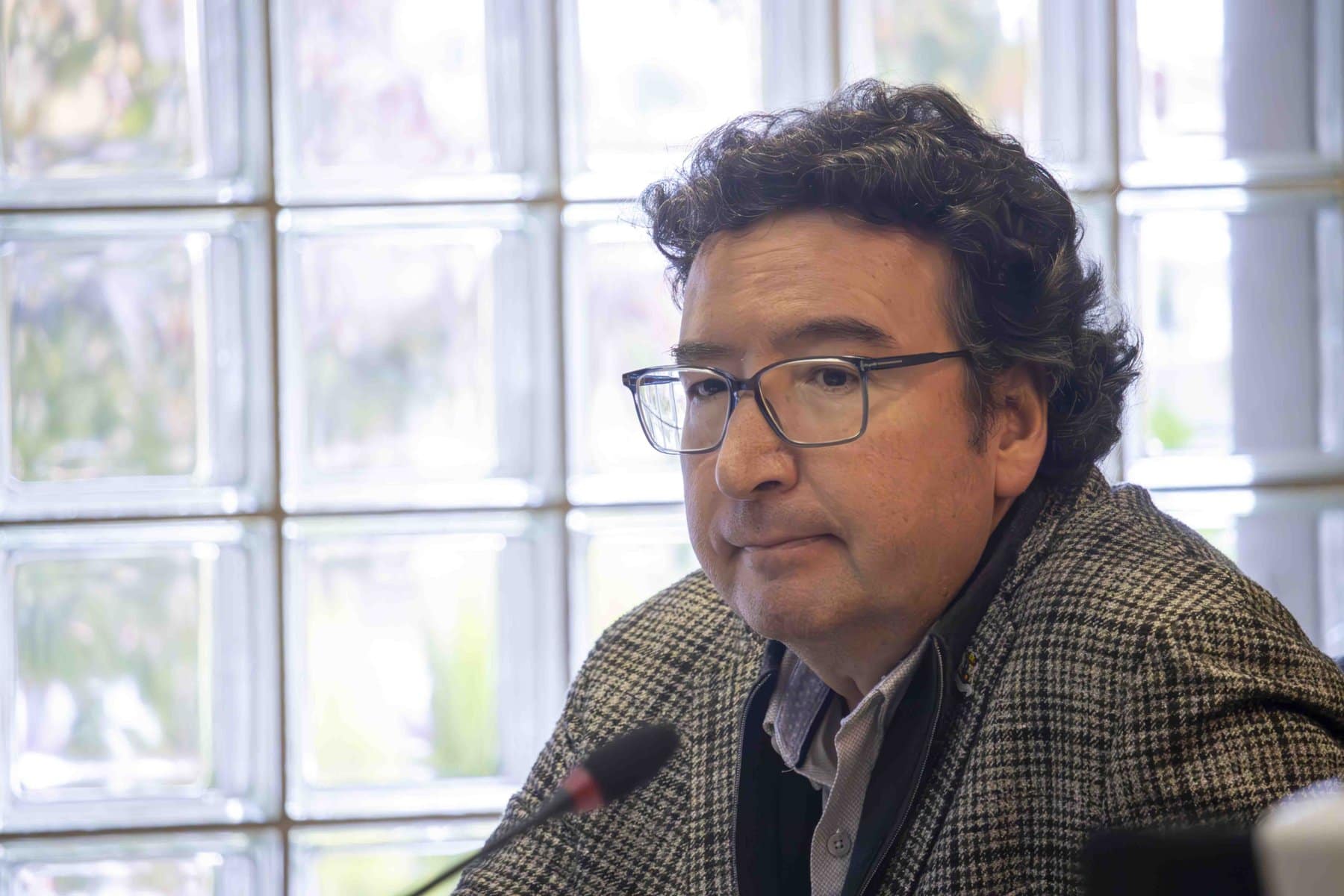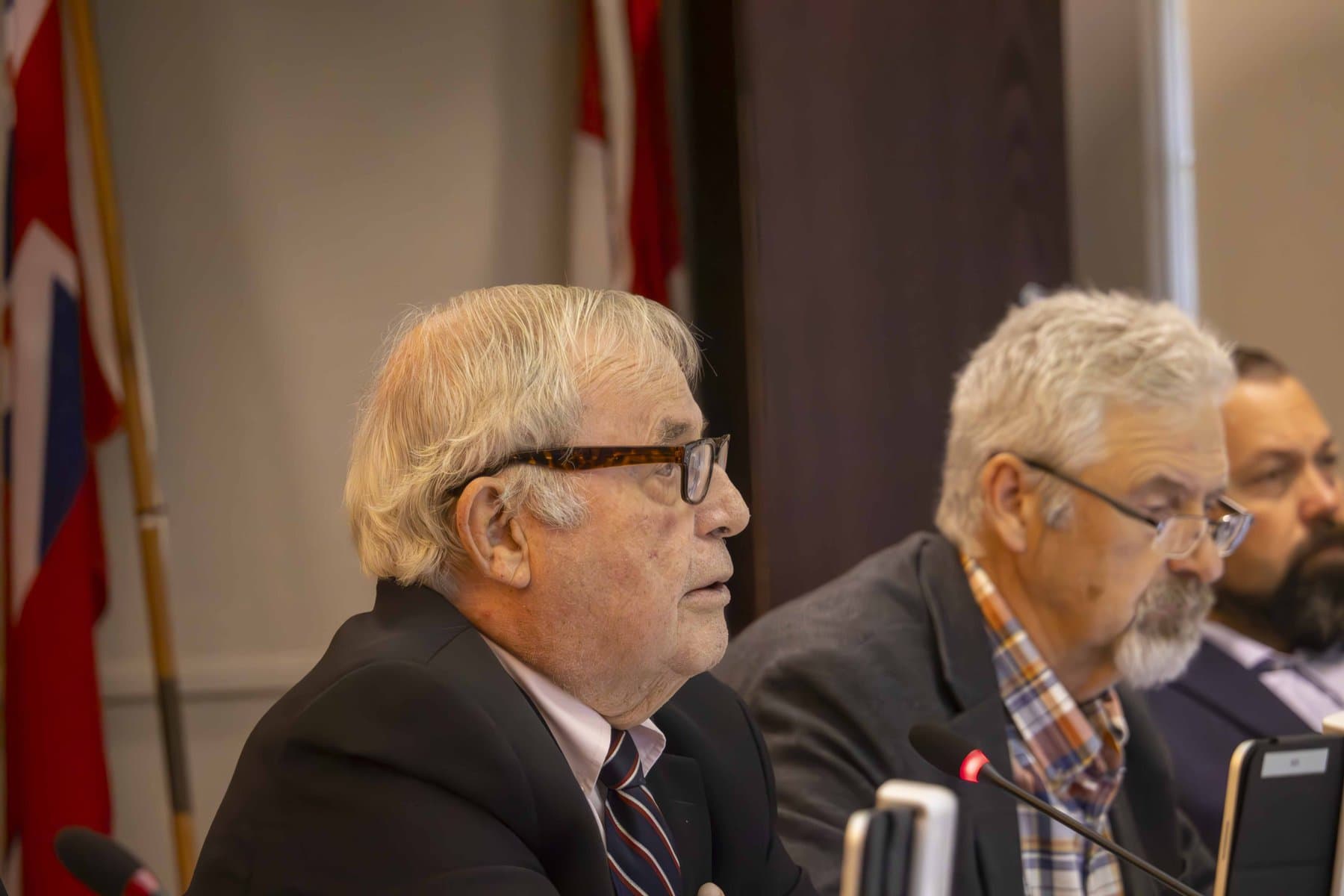Public input, long meetings, planner shortage, strict provincial rules all part of the mix
Some residents waited as long as four hours to chime in on new development proposals at a Niagara-on-the-Lake town planning meeting earlier this month.
Coun. Gary Burroughs thinks long meetings are becoming a trend for NOTL and he wants to see a solution that ensures residents get to have their say.
But Lord Mayor Gary Zalepa told The Lake Report NOTL has “the fortunate advantage that people want to invest here,” meaning there are lots of developers wanting to build in NOTL.
“The alternative is no investment,” he said.
He said there’s just a lot in the pipelines for NOTL, which means there’s more to discuss at planning meetings.
A long meeting, like the planning session on Oct. 3, is not out of the ordinary, Zalepa said. How long it runs depends on how engaged residents are in the projects under discussion, he said.
He also doesn’t think it’s a bad thing for a meeting to run overtime.
To him, a long meeting could just be a consequence of living in an engaged community.
The projects currently going through the public wringer are also more complicated, “have more moving parts and attract more attention,” he added.
Burroughs counters that the meetings are long because of new provincial legislation and that town planning staff are feeling the pinch of shorter processing deadlines.
New processing deadlines for residential development proposals came into effect July 1 after being introduced in Bill 109, the More Homes for Everyone Act.
Deadlines vary depending on the application, but according to chief administrator Marnie Cluckie, the tightest of them gives the town just 60 days to make a decision once it receives a completed application.
If that doesn’t happen, the town must refund part of the developer’s application fees.
Cluckie told The Lake Report the town wants to avoid refunding application fees because otherwise the cost could hit the taxpayer.
According to Burroughs, staff are now “cranking out these development applications” in an effort to meet the deadlines and avoid financial penalties.
“They’re doing what they’re supposed to,” he said.
But the result, he said, is that planning meetings are running later into the evening and unfortunately not every resident can wait until 10:30 p.m. to speak on a project proposal.
But Zalepa said he sees no connection between the new legislative provisions and the late-running planning meetings.
He said there’s more on the agenda in NOTL at the moment.
“I’ve seen long public meetings in the past. Before the changes. I think it’s just sometimes applications come forward and more people want to comment,” Zalepa said.
For Cluckie, it is a twofold issue.
“We’re seeing an increased number of applications. And we’ve seen it year over year,” she said.
But, she also said, the province is “encouraging people to move quickly” on housing applications in an effort to keep pace with the housing crisis.
Bill 109, the More Homes for Everyone Act, is just one in a laundry list of provincial bills designed to speed up housing development.
Bill 23, the More Homes Built Fast Act, which passed in November 2022, was also designed to speed up the development process.
That bill will shift many planning responsibilities from the region to the town and has been a source of alarm for many small towns, which often lack the in-house expertise which the region has access to.
In addition to legislative pressures, Cluckie said the town is short two planners.
The town has seven planners on the payroll, one of whom, a new heritage planner, is in training.
Cluckie said NOTL was top three or four in the region for the number of development applications it processed in 2022.
“We process as many applications as the bigger municipalities, right, but we have a small-town staff.”
And unfortunately the demand for qualified urban planners is higher than the supply, Cluckie said.
Planners are difficult to attract and retain because there are more jobs on the market than there are planners to fill them.
The Ontario Professional Planning Institute identified a shortage of planners as one of 13 barriers to the province’s housing goals.
Coun. Wendy Cheropita told The Lake Report planning meetings may continue to run late with the town wrapping up its work on the Glendale secondary plan, which opens up new opportunities for developers.
Cluckie sees a few potential solutions to the issue.
“We could revise the speaker time allotment,” she said.
While the town currently gives residents 10 minutes to speak, staff could cut this back to five when there are more residents signed up to speak at council.
She also suggested the town could schedule another meeting.
Cheropita wasn’t hopping the bandwagon to another meeting, though.
“Human beings, they’ll fill the space that you have,” she said. “You add another meeting, you’ll fill that time.”
Zalepa noted, “When you have 20 or 30 speakers in an evening, you’re gonna get a common theme once in a while.”
For example several residents who spoke on developer Rainer Hummel’s new hotel proposal at the corner of Queen and Mississagua streets, cited issues like heights and traffic impacts.
“When there’s repetitive comments, the chair needs to speak up and say, ‘Sorry, but could you please bring up some new information?’ ”
Zalepa wondered if council needs to enforce that standard a little more often.
Cluckie pointed out the procedural bylaw discourages people from speaking on issues they have already submitted to council in writing.
“We have not enforced that here. Because we’ve always wanted to allow people to speak as well if they want to.”
Despite additional responsibilities piling up for the town’s planning department, Cluckie maintains confidence in her staff.
Both she and Zalepa noted a shared service agreement NOTL struck with the region that will help the town manage its new workload as changes from Bill 23 come into effect.










